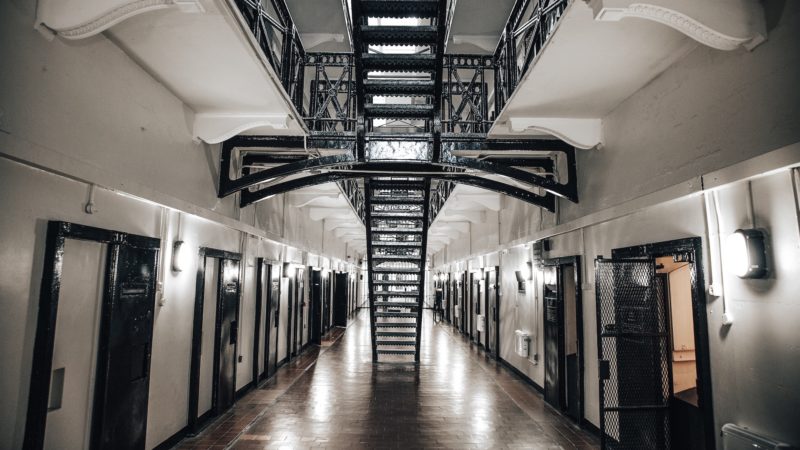
Following the election, Labour inherited a prison system in crisis. Spaces were dwindling and the prison estate was crumbling after more than a decade of underinvestment.
Not getting to grips with the issue would have serious implications for victims. No one wants to see a scenario where a lack of prison places means the court backlog grows, trials are suspended, and police have to stop making arrests.
That’s why the government announced emergency measures to tackle overcrowding, including a temporary change in May this year allowing the automatic release of recalled prisoners after a fixed period.
At the time, the Domestic Abuse Commissioner raised the alarm about the implications this change would have on survivor safety. She worried that perpetrators would be let out of prison with no regard for the level of danger this would put their victims in.
Senior police leaders also shared their concerns about forces’ ability to manage offenders in the community at current resource levels. Often an abuser’s breach of their license conditions – like showing up at a victim’s house or harassing them with calls and texts – needs a rapid response, not one day later when probation is typically notified.
As the Sentencing Bill comes before committee today, seeking to make these changes around recall permanent, I’m calling on government to rethink its approach to ensure that we properly assess the risk that perpetrators pose and provide domestic abuse victims with the safeguards they deserve.
READ MORE: Caerphilly by-election becomes test of Labour’s resilience amid Reform threat
I’m a campaigner and advocate for domestic abuse survivors; having worked in the sector, I’ve seen what perpetrators are capable of.
Domestic abuse and other types of violence against women and girls are unique crimes. Perpetrators are fixated on their victims, know everything about them, and can continue to abuse them even after a relationship has ended. It means they might be model prisoners when they don’t have access to their victims, but they remain a serious threat once released.
The number of prosecutions for domestic abuse-related offences has been falling for years. For the small percentage of victim-survivors who see justice through the courts, we must ensure that prison and Probation do the job of protecting them from further abuse. Failing to do so will erode what little trust they have left in our justice system.
The proposal to automatically release offenders recalled to prison after less than two months cannot go ahead in its current form. Simply holding abusers in custody for 56 days, with no efforts to reduce their risk, will create a continuous cycle of danger for victims.
We should be seriously concerned that a measure like this would make perpetrators feel untouchable, emboldening them to escalate their offending to potentially life-threatening levels.
Enhanced measures must be introduced so the risk perpetrators pose is properly assessed before they can be released into the community. Any breach of license conditions linked to their victim must take perpetrators off the automatic release pathway.
READ MORE: Is running for deputy Labour leader worth it? Former candidates reveal all
I recognise that the government has to create more capacity in our prisons. Current estimates show that, without reform, demand for places will outstrip supply by 9,500 in early 2028. But the reforms Labour make must have the interests of victims at their heart.
I proudly stood on a manifesto which committed to halving violence against women and girls in a decade. So far, we’ve seen progress towards this with new laws to make the online world safer, domestic abuse specialists sitting in 999 call centres, and investment in helplines and perpetrator programmes. In the Sentencing Bill itself, the government is addressing the fact that most domestic abuse offenders aren’t flagged in the system after they’re convicted through a new judicial finding of domestic abuse. These are all welcome steps.
But the current proposed plans on recall will undermine this vital mission. I therefore urge ministers to consider enhanced recall assessments for domestic abusers. Without them, victims and survivors will be in danger.
Subscribe here to our daily newsletter roundup of Labour news, analysis and comment– and follow us on Bluesky, WhatsApp, X and Facebook.
Share your thoughts. Contribute on this story or tell your own by writing to our Editor. The best letters every week will be published on the site. Find out how to get your letter published.
-
- SHARE: If you have anything to share that we should be looking into or publishing about this story – or any other topic involving Labour– contact us (strictly anonymously if you wish) at [email protected].
- SUBSCRIBE: Sign up to LabourList’s morning email here for the best briefing on everything Labour, every weekday morning.
- DONATE: If you value our work, please chip in a few pounds a week and become one of our supporters, helping sustain and expand our coverage.
- PARTNER: If you or your organisation might be interested in partnering with us on sponsored events or projects, email [email protected].
- ADVERTISE: If your organisation would like to advertise or run sponsored pieces on LabourList‘s daily newsletter or website, contact our exclusive ad partners Total Politics at [email protected].




More from LabourList
SPONSORED: ‘Industrial hemp and the challenge of turning Labour’s priorities into practice’
‘A day is a long time in politics, so we need ‘action this day’’
Strong support for child social media ban among Labour members, poll reveals